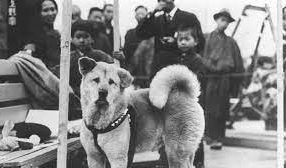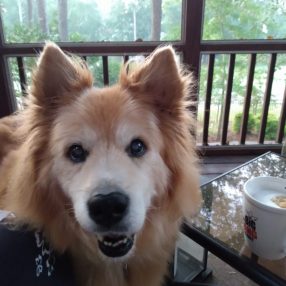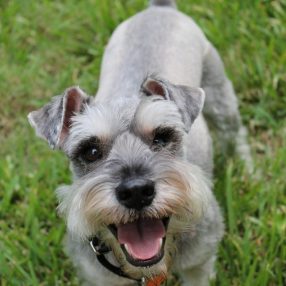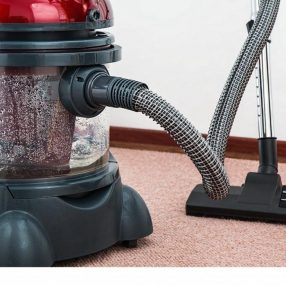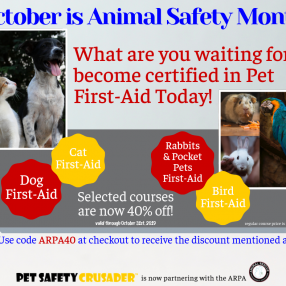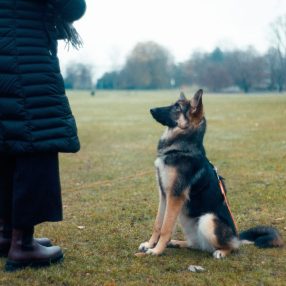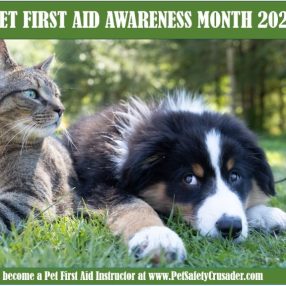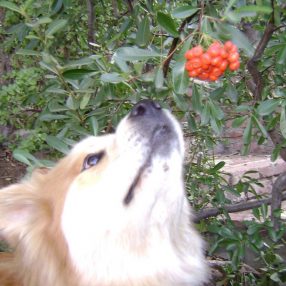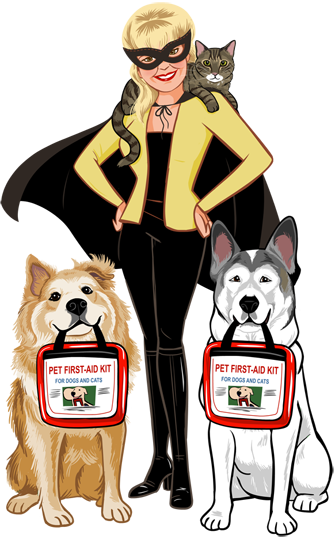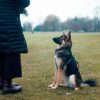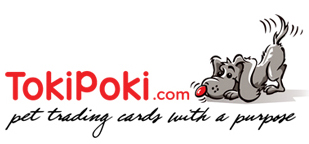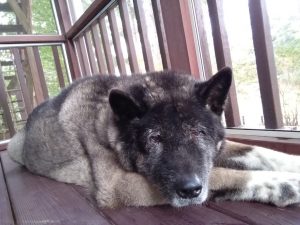 Watching your dog grow old can be a slow and gradual process that is hard to come to terms with. Your senior dog may not be able to walk as far, or play as much as he used to, but this doesn’t mean that he isn’t the same dog you have always loved. Even though your older dog is slowing down and sleeping more often, he will still love you just as much, and will rely on you more to help him age gracefully. In order to remain healthy and comfortable, you will need to make changes to your senior’s lifestyle and meet his new needs. There is no better time to start than the present, so here are 7 tips that will improve the health of your aging pooch.
Watching your dog grow old can be a slow and gradual process that is hard to come to terms with. Your senior dog may not be able to walk as far, or play as much as he used to, but this doesn’t mean that he isn’t the same dog you have always loved. Even though your older dog is slowing down and sleeping more often, he will still love you just as much, and will rely on you more to help him age gracefully. In order to remain healthy and comfortable, you will need to make changes to your senior’s lifestyle and meet his new needs. There is no better time to start than the present, so here are 7 tips that will improve the health of your aging pooch.
Protect Joints
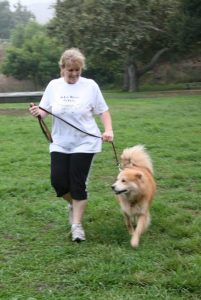
Many dogs become slower and less flexible during their old age and will struggle with joint pain and discomfort. You can help to protect joints by continuing to take your older best friend on short, but regular walks and helping maintain a healthy weight. Feeding your dog joint care supplements can help to slow down the progression of joint conditions and improve mobility. YuMove has a selection of products designed with joint care for dogs in mind. These tablets contain glucosamine and chondroitin, which help to lubricate joints and reduce stiffness in older dogs.
Don’t Stop Exercising
Even if your dog naps a lot and takes his daily walks a bit slower, keeping him active is vital and will improve the health of your aging pet. If you don’t exercise your elderly dog regularly, muscles become weak, which will lead to him being able to walk less and less over time. Walking an old dog frequently will keep his joints flexible, maintain a healthy weight, reduces inflammation and pain, promotes tissue regeneration, aids digestion, and more…exercise also stimulates the mind!
Adjust The Diet
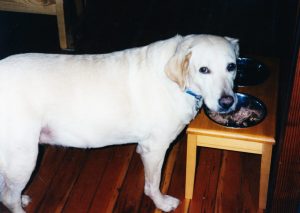 Adjusting your dog’s diet as he grows older is important. Your dog should be eating high-quality food that is well-balanced and suits his current life stage. For example, many pet foods have a senior variety, which contains less calories and extra vitamins to support your aging pet’s health. Changing your dog’s food takes time and should be discussed with your vet. Don’t just drop the calories on your own because if you have an active senior, he may still need those calories whereas if even a younger dog is a couch potato, he should consume less. Each dog is unique however, if your dog is gaining or losing weight without you trying to help him do so, you must speak with your dog’s second best friend – his veterinarian!.
Adjusting your dog’s diet as he grows older is important. Your dog should be eating high-quality food that is well-balanced and suits his current life stage. For example, many pet foods have a senior variety, which contains less calories and extra vitamins to support your aging pet’s health. Changing your dog’s food takes time and should be discussed with your vet. Don’t just drop the calories on your own because if you have an active senior, he may still need those calories whereas if even a younger dog is a couch potato, he should consume less. Each dog is unique however, if your dog is gaining or losing weight without you trying to help him do so, you must speak with your dog’s second best friend – his veterinarian!.
Monitor Temperature Extremes
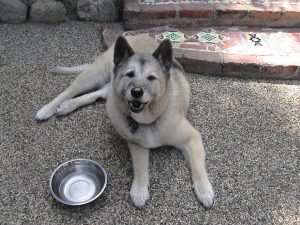 Temperature extremes can be difficult for an old dog. When the temperatures heats up during the summer, your senior pet will be more susceptible to heatstroke compared to a younger pet, so you should provide them with plenty of shade, fresh water and go for walks when temperatures are low. The cold weather can be dangerous during the winter. It makes joints stiffer and can put them at risk of developing hypothermia, so you should provide them with a warm indoor area when it’s cold.
Temperature extremes can be difficult for an old dog. When the temperatures heats up during the summer, your senior pet will be more susceptible to heatstroke compared to a younger pet, so you should provide them with plenty of shade, fresh water and go for walks when temperatures are low. The cold weather can be dangerous during the winter. It makes joints stiffer and can put them at risk of developing hypothermia, so you should provide them with a warm indoor area when it’s cold.
Clean Their Teeth
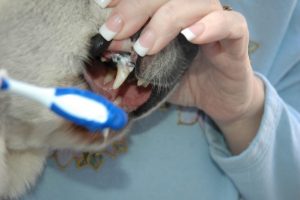 The health of your dog’s mouth is just as important as any other part of their body. Studies show that dogs who have regular dental care, live longer than those who don’t. Just like people, there is a link between poor dental health and certain diseases because the bacteria in the mouth travels through the blood stream and throughout the body. Bad teeth and gums may prevent your best friend from taking in good nutrition. You should brush your dog’s teeth 3-5 times a week using a dog-specific tooth paste. Dental chews and raw bones (just make sure they don’t become a choking hazard) are also effective at removing tartar and plaque, which will keep your elderly dog’s mouth healthy. Remember, bad breath could be, and usually is, a sign of a serious health problem.
The health of your dog’s mouth is just as important as any other part of their body. Studies show that dogs who have regular dental care, live longer than those who don’t. Just like people, there is a link between poor dental health and certain diseases because the bacteria in the mouth travels through the blood stream and throughout the body. Bad teeth and gums may prevent your best friend from taking in good nutrition. You should brush your dog’s teeth 3-5 times a week using a dog-specific tooth paste. Dental chews and raw bones (just make sure they don’t become a choking hazard) are also effective at removing tartar and plaque, which will keep your elderly dog’s mouth healthy. Remember, bad breath could be, and usually is, a sign of a serious health problem.
Regular Health Checks
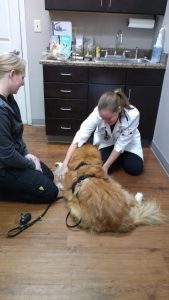
Regular health checks are essential when it comes to monitoring the health of your senior pet and checking for early signs of disease. Older dogs should see their vet every 6 months, unless your vet wants to see your dog more often. You can also perform health checks on your dog at home. This includes feeling for any lumps or bumps, monitoring their speed and agility and their eating habits, checking their eyes, nose, ears and mouths for any changes, and keeping them well-groomed.
Watch Their Eyes
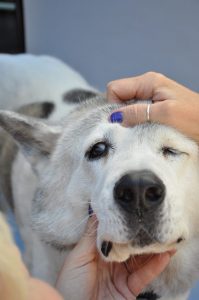 You may have noticed that your dog’s eyes are no longer as bright and clear as they used to be. They may have become slightly glazed over and have a grey/blue tinge to them. This is an eye condition known as Nuclear Sclerosis and is often mistaken for cataracts. Even though the lens appears cloudy, the dog will be able to see quite well. However, if your pooch begins to walk into things, this could be a sign that something more serious is going on and you should arrange a vet appointment at once.
You may have noticed that your dog’s eyes are no longer as bright and clear as they used to be. They may have become slightly glazed over and have a grey/blue tinge to them. This is an eye condition known as Nuclear Sclerosis and is often mistaken for cataracts. Even though the lens appears cloudy, the dog will be able to see quite well. However, if your pooch begins to walk into things, this could be a sign that something more serious is going on and you should arrange a vet appointment at once.
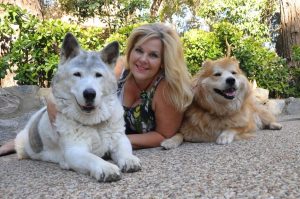 Elderly dogs are less demanding than younger dogs and are a pleasure to be around. By following the above tips and any advice given to you by your veterinarian, you will improve your senior pet’s quality of life by improving their health as they age, and continue to enjoy life together into their golden years.
Elderly dogs are less demanding than younger dogs and are a pleasure to be around. By following the above tips and any advice given to you by your veterinarian, you will improve your senior pet’s quality of life by improving their health as they age, and continue to enjoy life together into their golden years.

